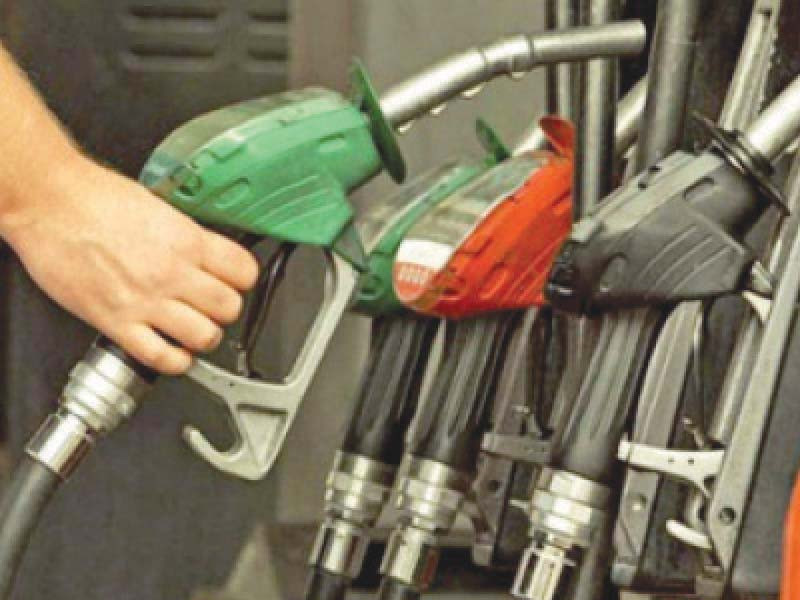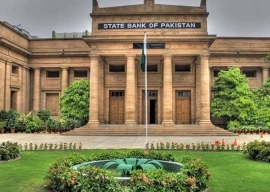
Pakistan’s recent cut in petroleum prices has failed to provide relief to the public, as the country continues to reel under the impact of hyperinflation. Some business lobbies, however, say the decrease is a welcome sign and will give the industrial sector some much-needed breathing space.
The government, on Monday, decreased the price of petrol by Rs12 and diesel by Rs30, with the hope that the prices of essential commodities and transport fares would also follow the same pattern. However, citizens believe that the cut is not sufficient, given the economic situation prevailing currently in the country.
Speaking to the Express Tribune, Sumama Zia, a citizen, said, “This is a relief, but it is not that great given the fact the petroleum prices have touched the all-time high in Pakistan.”
Zia added that it was unlikely that the price of commodities and transport fares would significantly decline since the Pakistani economy is fueled by ‘bad governance’, and once the price of any commodity increases, there are fewer chances of it coming back to its original price.
Pakistan’s economy has been hit hard by hyperinflation, with petrol prices increasing by 88.16% from May 2022 to May 2023 before adjusting to the current price of Rs270 per litre. The consumer price index (CPI) has increased to 36.4% in April 2023, compared to 13.4% for the corresponding month of the previous year.
On the other hand, the business community is satisfied with the recent cut in oil prices, saying that it will curtail inflation, reduce the cost of production, and provide impetus to the industry. Federation of Pakistan Chamber of Commerce and Industry’s United Business Group (UBG) Chairman Shahzad Ali Malik said, “It is a good decision to pass on the impact of petroleum prices to the people and the continuation of the ban on luxury goods.” He added that the reduced petroleum prices would lower transportation costs for businesses, improve profit margins, and potentially reduce the prices of goods and services, benefiting people.
Meanwhile, Pakistan Business Forum (PBF) Lahore President Muhammad Ejaz Tanveer said that the government should pass on the full benefit to consumers, especially industries that are at the lower end of the international rates. He added that it was the need of the hour for the government to pay full attention to the industry, especially export-oriented sectors, and help them overcome their ever-increasing cost of production. This would allow them to compete in the international market and fetch precious foreign exchange to the national kitty.
Published in The Express Tribune, May 17th, 2023.
Like Business on Facebook, follow @TribuneBiz on Twitter to stay informed and join in the conversation.
Pakistan’s recent cut in petroleum prices has failed to provide relief to the public, as the country continues to reel under the impact of hyperinflation. Some business lobbies, however, say the decrease is a welcome sign and will give the industrial sector some much-needed breathing space.
The government, on Monday, decreased the price of petrol by Rs12 and diesel by Rs30, with the hope that the prices of essential commodities and transport fares would also follow the same pattern. However, citizens believe that the cut is not sufficient, given the economic situation prevailing currently in the country.
Speaking to the Express Tribune, Sumama Zia, a citizen, said, “This is a relief, but it is not that great given the fact the petroleum prices have touched the all-time high in Pakistan.”
Zia added that it was unlikely that the price of commodities and transport fares would significantly decline since the Pakistani economy is fueled by ‘bad governance’, and once the price of any commodity increases, there are fewer chances of it coming back to its original price.
Pakistan’s economy has been hit hard by hyperinflation, with petrol prices increasing by 88.16% from May 2022 to May 2023 before adjusting to the current price of Rs270 per litre. The consumer price index (CPI) has increased to 36.4% in April 2023, compared to 13.4% for the corresponding month of the previous year.
On the other hand, the business community is satisfied with the recent cut in oil prices, saying that it will curtail inflation, reduce the cost of production, and provide impetus to the industry. Federation of Pakistan Chamber of Commerce and Industry’s United Business Group (UBG) Chairman Shahzad Ali Malik said, “It is a good decision to pass on the impact of petroleum prices to the people and the continuation of the ban on luxury goods.” He added that the reduced petroleum prices would lower transportation costs for businesses, improve profit margins, and potentially reduce the prices of goods and services, benefiting people.
Meanwhile, Pakistan Business Forum (PBF) Lahore President Muhammad Ejaz Tanveer said that the government should pass on the full benefit to consumers, especially industries that are at the lower end of the international rates. He added that it was the need of the hour for the government to pay full attention to the industry, especially export-oriented sectors, and help them overcome their ever-increasing cost of production. This would allow them to compete in the international market and fetch precious foreign exchange to the national kitty.
Published in The Express Tribune, May 17th, 2023.
Like Business on Facebook, follow @TribuneBiz on Twitter to stay informed and join in the conversation.



1730752226-0/Untitled-design-(35)1730752226-0-165x106.webp)












1730706072-0/Copy-of-Untitled-(2)1730706072-0-270x192.webp)
COMMENTS (1)
Comments are moderated and generally will be posted if they are on-topic and not abusive.
For more information, please see our Comments FAQ